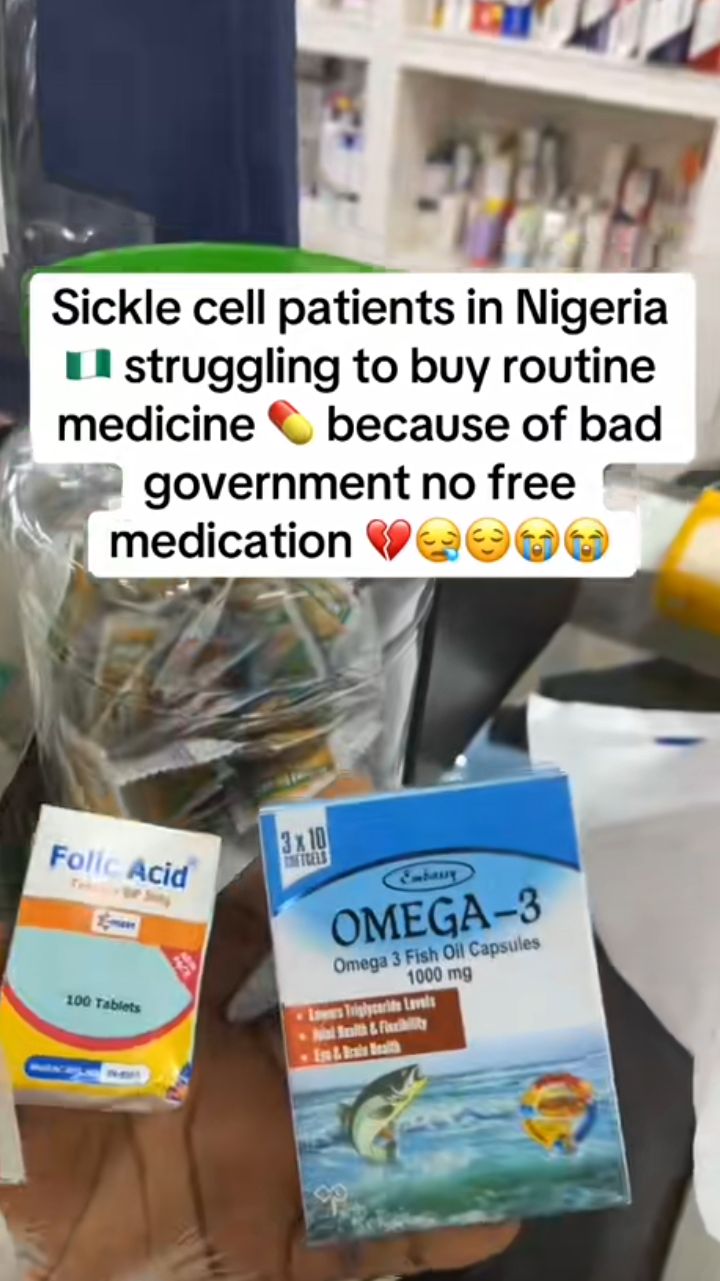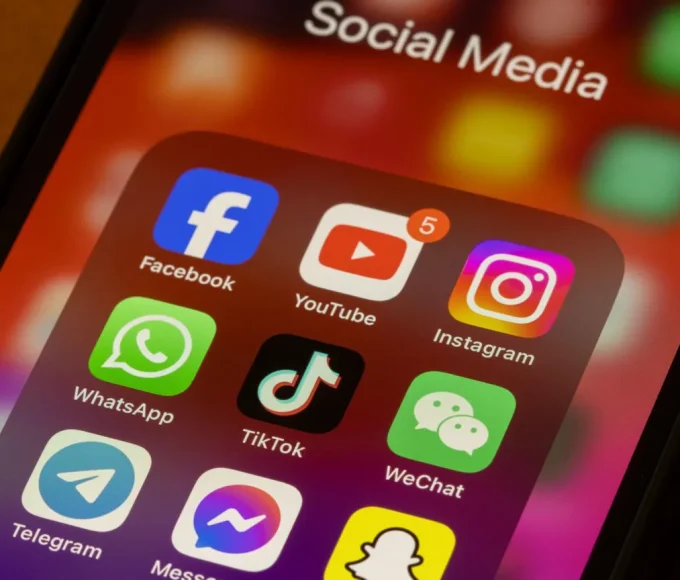
Sickle Cell Patients in Nigeria Lament High Cost, Lack of Government Support for Essential Medications

Sickle cell patients in Nigeria have taken to social media to express frustration over the rising cost of routine medications and the absence of government support, as the country grapples with the economic fallout of President Bola Tinubu’s policies.
A recent TikTok video posted by @d_sicklecellwarrior captured the daily struggle faced by individuals with the genetic blood disorder. The footage showed over-the-counter medications like folic acid and omega-3 supplements, routinely recommended for managing sickle cell disease, laid out with a caption that read:
“Sickle cell patients in Nigeria are struggling to buy routine medicine, because of bad government, no free medication.”
“Everything is just expensive everywhere,” one viewer commented under the video.
“Just doing counting over here,” another viewer commented, reflecting the helplessness many feel as they ration or forgo treatment due to costs.
Nigeria has the highest burden of sickle cell disease globally, with an estimated 150,000 children born with the condition every year. Yet, access to affordable care remains severely limited.
Folic acid is vital for red blood cell production, a process often impaired in sickle cell patients. Omega-3 fatty acids are sometimes recommended for their anti-inflammatory properties, which can help manage pain associated with the condition.
While these may be available over the counter, the recurring need for these and other prescribed medications can strain many Nigerians financially.
This growing crisis comes amid widespread economic hardship, worsened by the Tinubu administration’s disastrous policies.
Since assuming office in 2023, Tinubu has implemented aggressive subsidy removals, naira devaluations, and tax reforms that have sharply driven inflation. The result has been a staggering rise in the cost of living, including food, transportation, and basic healthcare, pushing millions deeper into poverty.
The lack of widespread government-provided medication for sickle cell disease has been a long-standing concern for patient advocacy groups, who argue that access to affordable and consistent medicines is essential for improving the quality of life and reducing the morbidity and mortality associated with the condition.
Read More:
- UTME 2025: Students Report Drastically Low Scores Compared to 2024, Demand JAMB Review Over Possible Technical Glitches
- Burkina Faso Showcases Locally-Made Light Armoured Vehicles
About The Author
Related Articles
Malian Army Says Dozens of Militants Killed in Airstrikes in Segou Region
Mali’s armed forces say they have killed about twenty suspected militants during...
ByWest Africa WeeklyFebruary 19, 2026Nigeria Approves 33 New Universities While Education Quality and Jobs Remain in Crisis
Nigeria has approved 33 new universities, bringing the total number of sanctioned...
ByWest Africa WeeklyFebruary 19, 2026Gabon Suspends Social Media “Until Further Notice” Amid Rising Unrest
Gabon’s media regulator has announced the suspension of social media platforms nationwide,...
ByWest Africa WeeklyFebruary 18, 2026Niger’s Tiani Visits Algeria in Bid to Strengthen Ties and Revive Key Projects
Abdourahamane Tiani, Niger’s head of state, is on an official visit to...
ByWest Africa WeeklyFebruary 18, 2026












Leave a comment